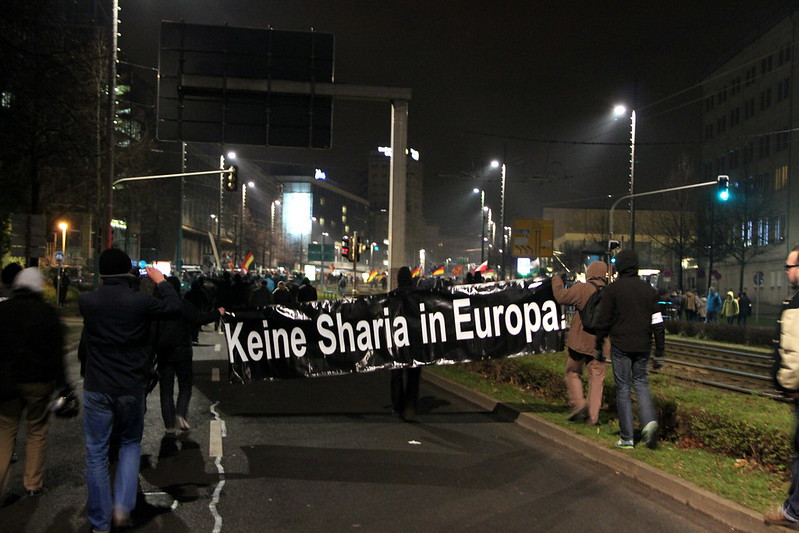The media informed last February 20th of a terrorist attack in Hanu, Germany, that killed 9 people in shootings against two shisha bars. The attack was carried out by Tobias R., a far right activist whose actions, as he explained in a video and letter published before the attack, had a clear xenophobic motivation.
In the letter written by the terrorist, whose body was found dead along with his mother’s the same night of the attack, he defended the supremacy of the German population, and demanded the killing of the African and Asian communities living in the country.
These last years we have witnessed a rise of far right parties and movements, many of them with parliamentary representation. These political actors demand the exclusion and deportation of other different national or religious communities, among them Muslim communities. That is the case of the Islamophobic movement PEGIDA or the far right party Alternative for Germany (AfD, according to its German acronym). The latter won a 13% of the seats in the last 2017 federal elections.
The inclusion of the far right
This experience, however, is not specific to Germany. The number of openly xenophobic parties has increased all across Europe. The French National Rally (ancient National Front) holds 8 seats in the National Assembly. Other parties with parliamentary representation include UKIP in the United Kingdom, the Party for Freedom and the Forum for Democracy in the Netherlands, VOX in Spain, Lega Nord in Italy was part of a coalition government up to 2019, and presidents such as Viktor Orban in Hungary or Andrzej Duda openly attack Islam and the Muslim communities. The list is, sadly, too long to include all existing parties.
It is increasingly necessary to confront the far right, and to reach deeper levels of collaboration between institutions and civil society to achieve more efficient measures to isolate far right actors and diminish its influence.
Even though many parties have established a political health control preventing relations with far right movements (as it is the case in Germany with the two main parties, the Christian Democratic Union and the Social Democratic Party), the number of parties open to negotiate and establish political agreements with them is increasingly growing. In Spain, for instance, VOX is an essential party in the governments of Andalucía, Murcia and Madrid. Thus, we are witnessing a whitewashing of the far right that allows them to take the streets and the institutions, and that legitimizes their discriminatory political stances against races, religion or gender.
Therefore, we shouldn’t be surprised of the increase in violence against foreign communities. The terrorist attack in Hanau is just one more consequence of the rise of the far right in Europe. Its presence transcends the discursive dimension, to turn into policies with structural consequences, and, finally, into explicit and physical violence against all those who are considered to be different. The attack lived last week wasn’t the first one – and won’t be the last one – against foreign communities resulting in a high number of victims. It is increasingly necessary to confront the far right, and to reach deeper levels of collaboration between institutions and civil society to achieve more efficient measures to isolate far right actors and diminish its influence.

















No Comments